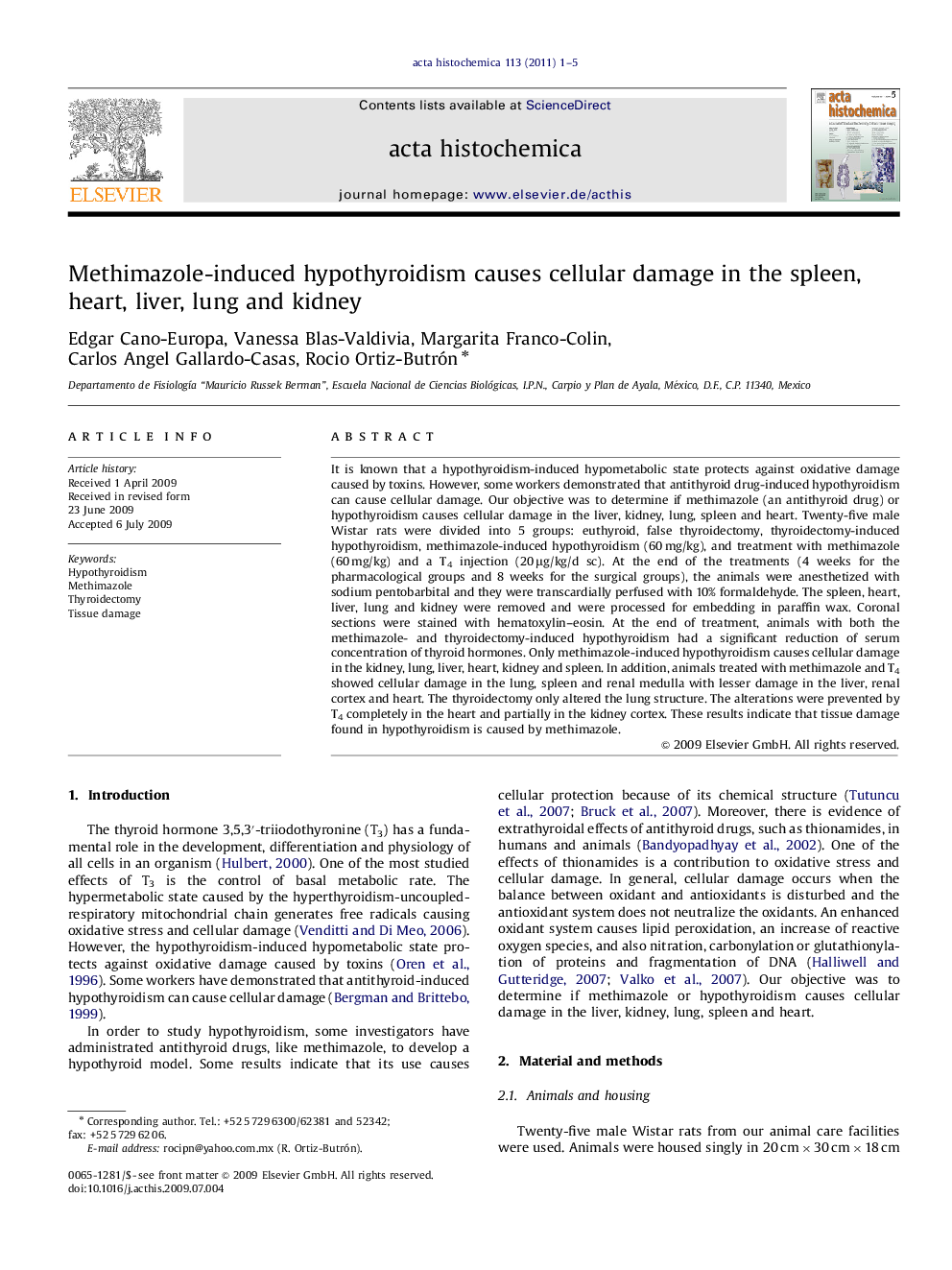| Article ID | Journal | Published Year | Pages | File Type |
|---|---|---|---|---|
| 1923920 | Acta Histochemica | 2011 | 5 Pages |
It is known that a hypothyroidism-induced hypometabolic state protects against oxidative damage caused by toxins. However, some workers demonstrated that antithyroid drug-induced hypothyroidism can cause cellular damage. Our objective was to determine if methimazole (an antithyroid drug) or hypothyroidism causes cellular damage in the liver, kidney, lung, spleen and heart. Twenty-five male Wistar rats were divided into 5 groups: euthyroid, false thyroidectomy, thyroidectomy-induced hypothyroidism, methimazole-induced hypothyroidism (60 mg/kg), and treatment with methimazole (60 mg/kg) and a T4 injection (20 μg/kg/d sc). At the end of the treatments (4 weeks for the pharmacological groups and 8 weeks for the surgical groups), the animals were anesthetized with sodium pentobarbital and they were transcardially perfused with 10% formaldehyde. The spleen, heart, liver, lung and kidney were removed and were processed for embedding in paraffin wax. Coronal sections were stained with hematoxylin–eosin. At the end of treatment, animals with both the methimazole- and thyroidectomy-induced hypothyroidism had a significant reduction of serum concentration of thyroid hormones. Only methimazole-induced hypothyroidism causes cellular damage in the kidney, lung, liver, heart, kidney and spleen. In addition, animals treated with methimazole and T4 showed cellular damage in the lung, spleen and renal medulla with lesser damage in the liver, renal cortex and heart. The thyroidectomy only altered the lung structure. The alterations were prevented by T4 completely in the heart and partially in the kidney cortex. These results indicate that tissue damage found in hypothyroidism is caused by methimazole.
